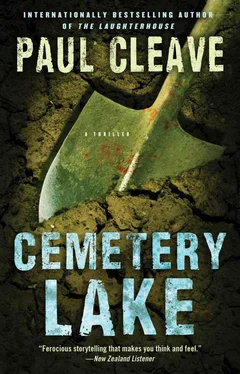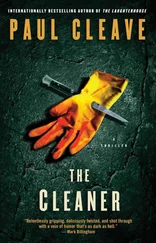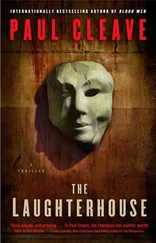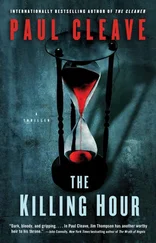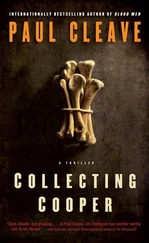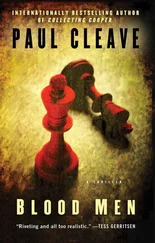Paul Cleave - Cemetery Lake
Здесь есть возможность читать онлайн «Paul Cleave - Cemetery Lake» весь текст электронной книги совершенно бесплатно (целиком полную версию без сокращений). В некоторых случаях можно слушать аудио, скачать через торрент в формате fb2 и присутствует краткое содержание. Год выпуска: 2008, ISBN: 2008, Издательство: Atria Books, Жанр: Триллер, на английском языке. Описание произведения, (предисловие) а так же отзывы посетителей доступны на портале библиотеки ЛибКат.
- Название:Cemetery Lake
- Автор:
- Издательство:Atria Books
- Жанр:
- Год:2008
- ISBN:9781451677836
- Рейтинг книги:3 / 5. Голосов: 1
-
Избранное:Добавить в избранное
- Отзывы:
-
Ваша оценка:
- 60
- 1
- 2
- 3
- 4
- 5
Cemetery Lake: краткое содержание, описание и аннотация
Предлагаем к чтению аннотацию, описание, краткое содержание или предисловие (зависит от того, что написал сам автор книги «Cemetery Lake»). Если вы не нашли необходимую информацию о книге — напишите в комментариях, мы постараемся отыскать её.
Cemetery Lake — читать онлайн бесплатно полную книгу (весь текст) целиком
Ниже представлен текст книги, разбитый по страницам. Система сохранения места последней прочитанной страницы, позволяет с удобством читать онлайн бесплатно книгу «Cemetery Lake», без необходимости каждый раз заново искать на чём Вы остановились. Поставьте закладку, и сможете в любой момент перейти на страницу, на которой закончили чтение.
Интервал:
Закладка:
“Can you move your van now?”
“Of course. Thank you for your time, Detect. . I mean, Mr. Tate.”
The light on the camera switches off. Casey Horwell looks at me for a few more seconds, that same smile still on her face, then she turns away and climbs into the van. A few seconds later it pulls away. I get back into my car and park it in the driveway, too tired to put it in the garage.
My house has three bedrooms, but only one of them gets used. My daughter’s bedroom is still set up as if one day she’s going to return home, and I’m not exactly sure how healthy that is and I’m not exactly sure I care to know. If my wife were here maybe she’d have made a decision to change that, but she isn’t. It’s just like Patricia Tyler keeping a room for her daughter. Snapshots of time. It seems to be what life is about.
I jump in the shower to wash the blood and the confetti-sized pieces of the caretaker’s skull off me. I climb out feeling more awake.
I put a CD on the stereo, grab a beer, and go out onto the deck, pushing play on my answering machine on the way. It’s my mother. She’s calling to see how the rest of my day went, and to ask about what happened. I make a mental note to call her tomorrow.
The night has warmed up a little, and I sit on the deck chair in the misty rain and stare up at the night, listening to the music as the beer helps calm my nerves. I’d sit out here sometimes with Bridget after Emily was asleep. It’s sheltered from the wind when it’s cold, but when the wind is warm it sweeps in from the opposite direction and onto the deck. I’d slowly drink a beer and she’d slowly drink a glass of wine and we’d talk about our day. I always felt as though I could tell her anything, but there were cases I couldn’t bring home. They would stay in my mind, but I didn’t want them in hers. They were a part of my life and I didn’t want them to intrude on hers. We’d talk about our pasts and about our future; we had plans to move into a bigger house, we were debating whether to have more children. We would sit out here and laugh, we would make plans, we would argue.
The rain drifts away and the sky clears a little; a gap appears in the cloud cover, and for a moment there’s a quarter moon up there; it throws around enough pale light so that when I look at my watch I can see the night is slipping further away. Emily’s cat, a ginger tom named Daxter, comes through the sliding door and jumps up on my lap. He starts purring while I scratch him under his chin. He was only six months old when Emily died, and any question as to whether cats can remember people has been answered by the fact that the only place he ever sleeps is on her bed, and that sometimes he has the same look in his eyes my wife has-as if he’s looking for something that isn’t there anymore.
I finish the beer and head back inside. I refill Daxter’s bowls with food and water, and he seems grateful enough. I walk past my daughter’s bedroom, but don’t go in. I think about Rachel Tyler, but I try hard not to think about what her final hour was like. I try to envision a scenario in which Bruce the dead caretaker is innocent, but can’t seem to come up with much. Then I think about Casey Horwell, and can’t help but wonder if there is any truth in what she said about everybody hating me.
Daxter is asleep on Emily’s bed when I finally hit the sack. I lie in the darkness, thinking about my dead family and the man who made them that way. I wish that in this average house in this average street nothing bad had ever happened, but it’s already too late.
CHAPTER FOURTEEN
I end up sleeping in, which isn’t a good start to the case. When I flip open my cell phone I find that it has given up. The trip into the lake was worse for it than I thought. I shake it a bit and flex the casing, and I slip the battery in and out and try plugging it in, but nothing happens. I have no idea how many calls I’ve missed.
I drive through the city thinking that Christchurch and technology go together like drinking and driving: they don’t mix well, but some still think it’s a good idea. Everything here looks old, and for the most part it is. People living in the past have set historical values on buildings dating back over a hundred years, and have had them protected from the future. Investors can’t come along and replace them with high-rises and apartment complexes. It’s a cold-looking city made to look even colder in the dreary weather. Everything looks so damn archaic. Even the hookers look fifty years old. A glue sniffer on a mountain bike has a cardboard tube running from his mouth down to the plastic bag by the handlebars. He’s multi-tasking. He’s sniffing glue and riding on the sidewalk, and he can keep doing both without the distraction of lifting the bag to his face.
It’s only eleven in the morning, yet I struggle to find a parking space at the shopping mall. I squeeze in next to a boy-racer Skyline that looks expensive and suggests the guy driving it has a job, though if he’s here at the same time as me on a weekday then he probably doesn’t, unless he’s a private investigator. I head into a phone store and deal with a guy who seems more interested in staring across the mall at the hairdressers than he does at the phone I’m showing him. I look over at the hairdressers and can’t blame him.
“It’s cheaper to upgrade,” he says, “than get this thing fixed. Plus it’ll be away for a few weeks. What did you do to it, anyway?”
“It fell in the bath.”
“Yeah-that’ll do it. Anyway, this thing is obsolete.”
“I bought it eighteen months ago.”
“Yeah, like I said, it’s obsolete.”
He shows me a range of cell phones and I pick out one that looks like it shouldn’t confuse me too much and will also be out of date in about a year. He sets it up so my old number will work on it, and warns me it could take between one and two hours to become active.
“Where do I recognize you from?” he asks, handing back my credit card.
I shrug. “Beats me.”
He slowly shakes his head. “I’m sure I’ve seen you,” he says.
I’m sure he has too-probably on TV yesterday when I was sitting in the back of an ambulance. We finish up and I let him get back to watching the hairdressers.
The police station is ten stories of concrete block and glass that was out of date around the same time it was built. I park out on the street and feed the meter before walking up the steps to the foyer. There isn’t much going on at ground-floor level, just a few people waiting in line to make complaints. I sign in at a desk; the process is simple enough since I’m expected upstairs. I press the up button and a moment later the elevator arrives. I hit the button for the fourth floor, and the elevator comes to a stop on the first floor and I have company. A guy in overalls, thirtyish, carrying a bucket and mop.
“I’m the cleaner,” he says, and he grins at me, showing me all his teeth. I smile back at him, and the elevator hits the fourth floor and the doors open. I step out, and the janitor follows. We walk a few paces before Carl Schroder sees us and comes over.
“Can I get you a coffee, Detective Schroder?” the janitor asks him.
“I’m fine, Joe. Thanks, though.”
The cleaner walks away and I watch him go before turning back to Schroder. I’ve known Carl for many years. In another lifetime we worked the same cases as partners, dealt with the same problems. We used to be pretty good friends, but it’s obvious he doesn’t really want me here. He leads me over to a table to a bunch of forms and asks me to sign them. He tells me the crime scene has been released, and I ask him how the investigation is going, and he says it’s going okay. He doesn’t elaborate on that. Just says it’s okay and nothing else, which means he either doesn’t want to tell me or things are going badly.
Читать дальшеИнтервал:
Закладка:
Похожие книги на «Cemetery Lake»
Представляем Вашему вниманию похожие книги на «Cemetery Lake» списком для выбора. Мы отобрали схожую по названию и смыслу литературу в надежде предоставить читателям больше вариантов отыскать новые, интересные, ещё непрочитанные произведения.
Обсуждение, отзывы о книге «Cemetery Lake» и просто собственные мнения читателей. Оставьте ваши комментарии, напишите, что Вы думаете о произведении, его смысле или главных героях. Укажите что конкретно понравилось, а что нет, и почему Вы так считаете.
